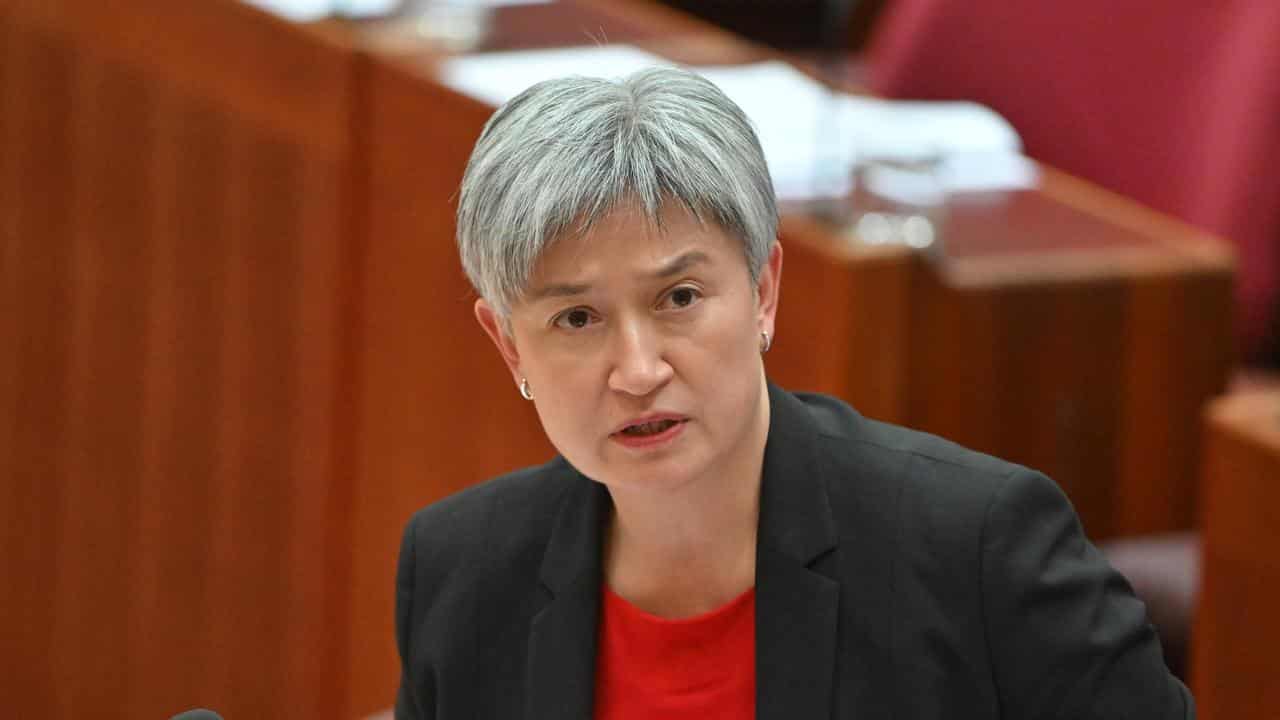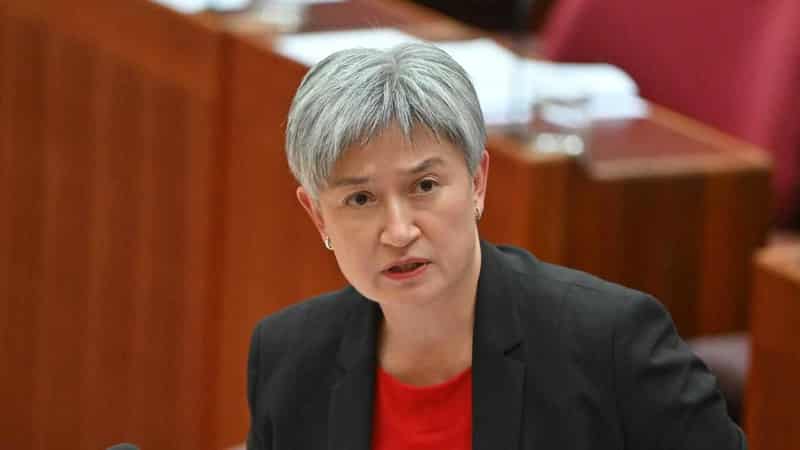
As children are pushed to starvation in Palestine, Australia must remember why previous governments have funded the United Nation's refugee relief agency, Foreign Affairs Minister Penny Wong says.
The government has joined at least eight other allies and paused funding to United Nations Relief and Works Agency for Palestinian Refugees (UNRWA) after Israel accused dozens of the aid body's members of participating in Hamas's attack on October 7.
The move has been slammed by international aid organisations and the Palestinian representative in Australia as collective punishment and a severe hindrance to Palestinians' well-being.
At a joint press conference on Thursday, the foreign affairs minister reiterated her concerns over the allegations but noted UNRWA had been funded by previous Australian governments since 1951.
"It is the only organisation which delivers the sort of systems and substantive support into the occupied Palestinian territories within the international system," she told reporters.
"It is important that we remember why it is that previous governments have funded this organisation, but also the scale of the humanitarian crisis and the absence of any alternatives.
"If we are serious about trying to ensure that fewer children are starving, that is what we are faced with."
It has been almost five months Hamas, designated a terrorist organisation by the Australian government, attacked Israel on October 7 and killing more than 1200 Israelis.
Since then Tel Aviv has unleashed a bombing campaign, blockade and ground invasion on the Gaza Strip that has killed more than 26,000 Palestinians, displaced nearly two million residents and have left many more at risk of starvation.
UNRWA plays a vital humanitarian role, and while Human Rights Watch said the allegations needed to be addressed, suspending aid risks hastening famine.
"Withholding funds from the UN agency most able to provide immediate lifesaving food, water, and medicine to the more than 2.3 million people of Gaza shows callous indifference to what the world’s leading experts have warned is the looming risk of famine,” HRW crisis advocacy director Akshaya Kumar said.
Prime Minister Anthony Albanese said his government would resolve the funding issue after discussions with the UN.
"We'll take considered advice, we want to make ensure that every dollar that Australia contributes ... goes to helping people on the ground who really need it," he said.
He also mentioned Australia is not in direct talks with the United States to recognise Palestine as a state despite the Labor Party's position to do so.
"We're not in talks. It has been my government's position and been my personal position for a long period of time, that I support a two-state solution," he told ABC radio on Thursday.
"I've certainly had discussions with (US) Secretary (of State Antony) Blinken as well as with President (Joe) Biden about the issues of the Middle East and what's very clear is that we need a political solution.
"Israel has a right to exist within secure borders and that Palestinian people need justice and need their own state as well."
The reports about the US canvassing policy options about recognition were in line with a statement released by Australia, Canada and New Zealand, the prime minister added.
The December statement recognised Israel's right to exist and supported Palestine's right to self-determination.
It also opposed the reoccupation of Gaza, any land grabs by Israel and the use of sieges or blockades as it reaffirmed commitment to a two-state solution.
Labor's policy platform is to formally recognise Palestine as a state but no timeline and several caveats have been attached.
A push to recognise Palestinian statehood during Labor's national conference last year faltered after pro-Israeli MPs and members threatened to strip the policy and fracture the party.









